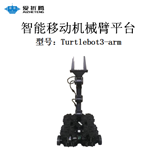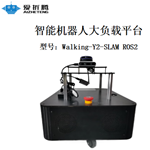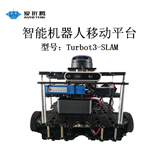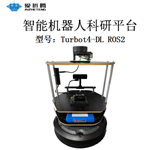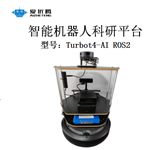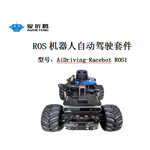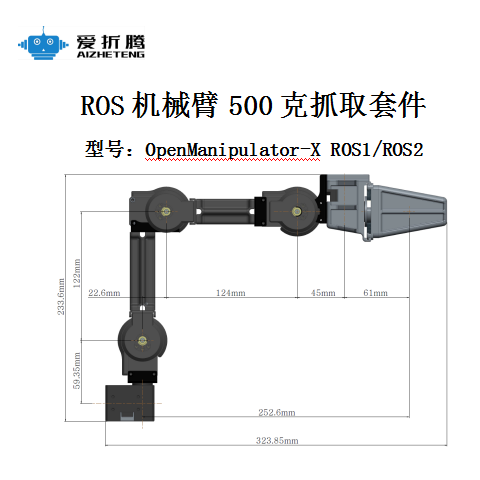ROS与C++入门教程-tf-使用已发布的变换
ROS与C++入门教程-tf-使用已发布的变换
说明:
- 介绍roscpp节点获取和使用TF的变换。
TransformListener
- 通过调用 tf::TransformListener类来处理变换,它继承自tf::Transformer。
核心方法
(1)构造函数
- 示例代码:
TransformListener(const ros::NodeHandle &nh, ros::Duration max_cache_time=ros::Duration(DEFAULT_CACHE_TIME), bool spin_thread=true)
TransformListener(ros::Duration max_cache_time=ros::Duration(DEFAULT_CACHE_TIME), bool spin_thread=true)
(2)辅助方法
- 示例代码:
std::string tf::TransformListener::resolve (const std::string &frame_id)
- 结合tf_prefix获取解析的frame_id,查阅geometry/CoordinateFrameConventions.
(3)canTransform()函数
- 返回bool ,判断能否实现变换。不会抛出异常,如果出错,会返回error_msg的内容。
- 基本API:
bool tf::TransformListener::canTransform (const std::string &target_frame, const std::string &source_frame, const ros::Time &time, std::string *error_msg=NULL) const
- 检查在时间time,source_frame能否变换到target_frame。
- 高级API:
bool tf::TransformListener::canTransform (const std::string &target_frame, const ros::Time &target_time, const std::string &source_frame, const ros::Time &source_time, const std::string &fixed_frame, std::string *error_msg=NULL) const
- 检查在时间source_time,source_frame能否变换到fixed_frame,那么再实现在target_time变换到target_frame。
(4)waitForTransform()函数
- 返回bool值,评估变换是否有效。
- 基本API:
bool tf::TransformListener::waitForTransform (const std::string &target_frame, const std::string &source_frame, const ros::Time &time, const ros::Duration &timeout, const ros::Duration &polling_sleep_duration=ros::Duration(0.01), std::string *error_msg=NULL) const
- 检查在时间time, source_frame能否变换到target_frame
- 它将休眠并重试每个polling_duration,直到超时的持续时间已经过去。 它不会抛出异常。 在一个错误的情况下,如果你传递一个非NULL字符串指针,它会填充字符串error_msg。 (注意:这需要大量的资源来生成错误消息。)
- 高级API:
bool tf::TransformListener::waitForTransform (const std::string &target_frame, const ros::Time &target_time, const std::string &source_frame, const ros::Time &source_time, const std::string &fixed_frame, const ros::Duration &timeout, const ros::Duration &polling_sleep_duration=ros::Duration(0.01), std::string *error_msg=NULL) const
- 测试在source_time时间,source_frame能否变换到fixed_frame,那么在target_time,变换到target_frame。
(5)lookupTransform
lookupTransform()是一个更底层的方法用于返回两个坐标系的变换。
这个方法是 tf库的核心方法。大部分transform的方法都是终端用户使用,而这个方法设计在transform()方法内使用的。
返回的变换的方向将从target_frame到source_frame。 如果应用于数据,将把source_frame中的数据转换为target_frame。查阅geometry/CoordinateFrameConventions#Transform_Direction
这个方法会抛出TF的异常
基本API:
void tf::TransformListener::lookupTransform (const std::string &target_frame, const std::string &source_frame, const ros::Time &time, StampedTransform &transform) const
- 在时间time上使用从source_frame到target_frame的变换填充transform
- 高级API:
void tf::TransformListener::lookupTransform (const std::string &target_frame, const ros::Time &target_time, const std::string &source_frame, const ros::Time &source_time, const std::string &fixed_frame, StampedTransform &transform) const
- 在source_time使用从source_frame到fixed_frame的变换填充transform,在target_time从fixed_frame到target_frame的链接变换。
transformDATA 方法
- tf::TransformListener类的主要目的是在坐标系间进行变换数据。
- 支持的数据类型:
C++ Method Name |
Python Method Name |
Full Datatype |
transformQuaternion() |
none |
tf::Stamped<tf::Quaternion> |
transformVector() |
none |
tf::Stamped<tf::Vector3> |
transformPoint() |
none |
tf::Stamped<tf::Point> |
transformPose() |
none |
tf::Stamped<tf::Pose> |
transformQuaternion() |
transformQuaternion() |
|
transformVector() |
transformVector3() |
|
transformPoint() |
transformPoint() |
|
transformPose() |
transformPose() |
|
transformPointCloud() |
transformPointCloud() |
- 基本API:
void tf::TransformListener::transformDATATYPE (const std::string &target_frame, const geometry_msgs::DATATYPEStamped &stamped_in, geometry_msgs::DATATYPEStamped &stamped_out) const
- 将数据stamped_in转换为target_frame,使用标记的数据类型中的frame_id和stamp作为源。
- 高级API:
void tf::TransformListener::transformDATATYPE (const std::string &target_frame, const ros::Time &target_time, const geometry_msgs::DATATYPEStamped &pin, const std::string &fixed_frame, geometry_msgs::DATATYPEStamped &pout) const
- 将数据stamped_in转换为fixed_frame。 使用标记数据类型中的frame_id和stamp作为源。 然后在target_time从fixed_frame变换到target_frame。
获取最新文章: 扫一扫右上角的二维码加入“创客智造”公众号




